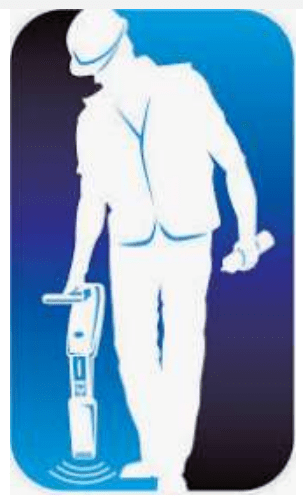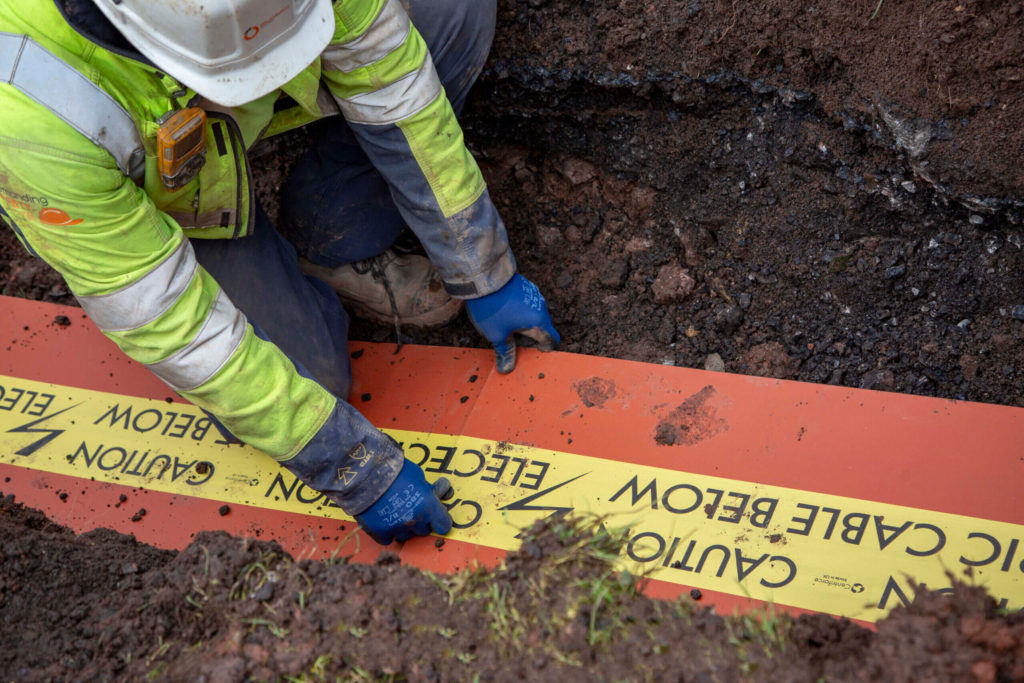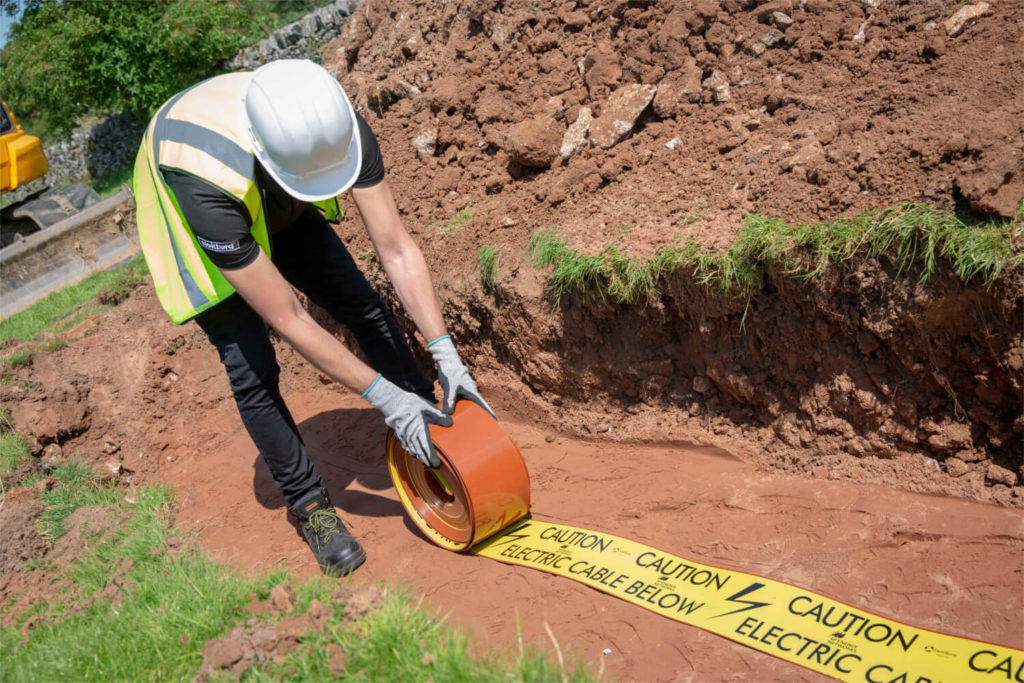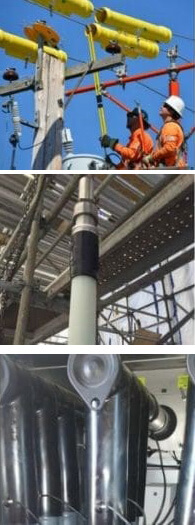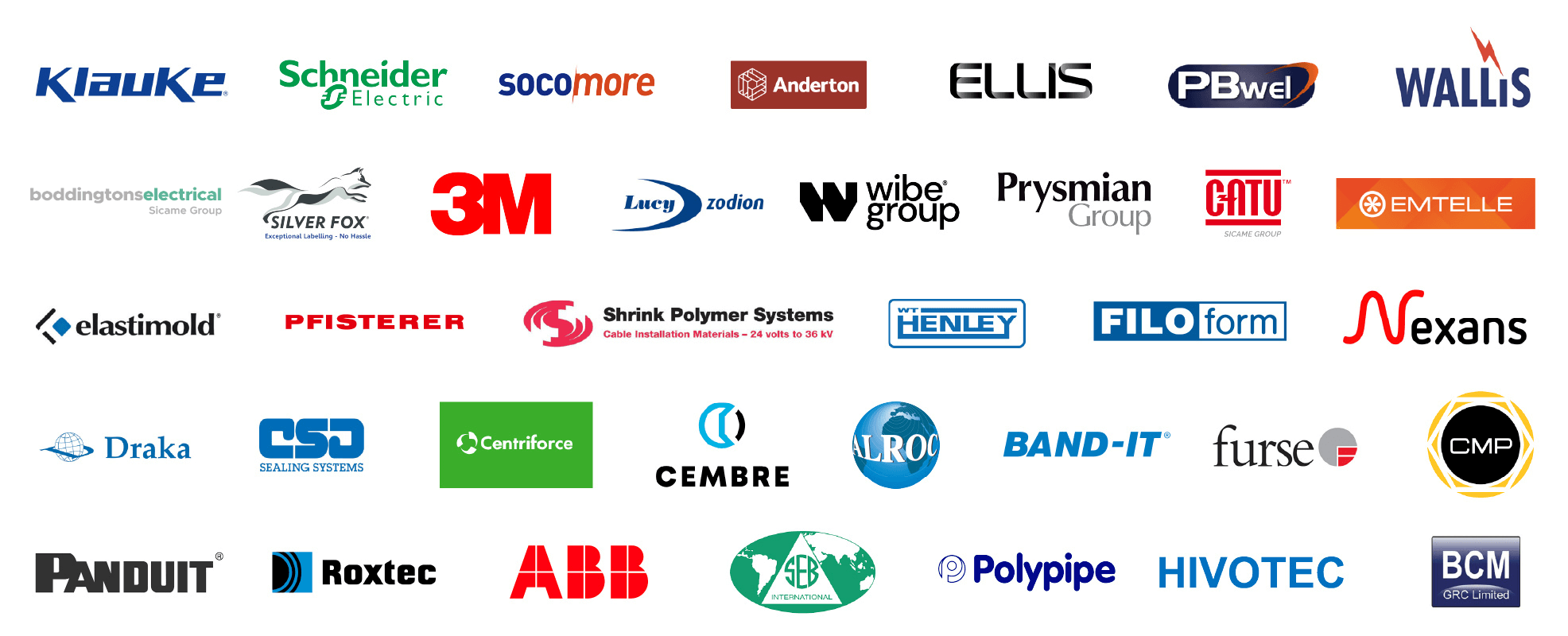Cable Strikes | Gas and Electric Service Strikes
Published 11 May 2021

Cable Strikes
Utility Strike Avoidance Group
USAG have published a range of documents to assist industry understanding of the root cause and contributory factors behind specific incidents. The aim is to improve industry standards and reduce the number of cable strikes.
Cable damage is usually caused by excavating machines – hand held tools such as pneumatic drills, crowbars, pins, picks and forks also expose workers to potential sources of danger when digging around underground cables.
The next in the series is a safety alert thanks to Highway England regarding a series of cable strikes to a 20mm gas pipe and a low-voltage electric cable.

Series of Service Strikes
Background to the Incident
In May of 2020, a 20mm gas pipe and a low-voltage electric cable were struck in Wardington and on the M40 J11 improvement works respectively.
In August 2020, another low-voltage electric cable was struck on the M40 J11 improvement works. Investigations into these incidents revealed that all Fusion processes were followed:
- Prior to works being undertaken, utility drawings were made available.
- PAS 128 survey of the area was undertaken including the Ground Penetrating Radar (GPR) and Electro-Magnetic Locating (EML) surveys.
- A permit to dig was issued and the gang was briefed on the work to be carried out.
- The gangs were experienced and deemed competent.
- Works were supervised and service locators were on-site.
- All hand tools were insulated.
- All services were shallow (< 300mm).
Considerations
Utility drawings can be inaccurate and out of date, and so alone are not to be relied on.
Utilities should be installed as per industry standards, which include depths of over 450mm with proximity warning aids including coloured tape to identify utility types and surrounding the service in a bed of peashingle – none of these services struck complied.
Key Findings and Action Taken to Prevent Reoccurrence
- The Junction 11 package of works obtained their PAS 128 data for their permit to break ground system from an external source rather than from the established Fusion PAS 128 team. It was not mandated by Fusion to have to use this team. It has now been mandated that all PAS 128 surveys required for Fusion sites, will now be managed by the Fusion PAS 128 team and follow the same stringent analysis and assurance process.
- Further investigation of the PAS 128 data – i.e. interpretation of utility drawings and other information available when on site conducting the Electro-Magnetic Location (EML – CAT&Genny) surveys, showed the external supplier interpreted the information differently to the Fusion PAS 128 team. Although people with the appropriate training are deemed competent, it should be recognised that those with more experience are more likely to interpret information with a higher degree of accuracy.
- The absence of street furniture and other equipment is not a reliable indication of a lack of underground cables and caution must be exercised at all times whilst breaking ground and digging.
➡ Thorne & Derrick distributes Insulated Tools for the Rail & Utilities industries manufactured to British Standard BS 8020-2011.
Protecting Cables Against Strikes & Restoring Power Post-Strike
Thorne & Derrick have been distributors for 3M Electrical since 1985 and can provide a range of reliable and easy to install Cable Repair Products – this includes Scotch Tapes, Scotchcast Joints and Cold Shrink Tubes to provide effective re-instatement of cable sheath jackets on all types of LV MV HV cables in onshore and offshore locations with safe or hazardous area workplace classifications.

Cable Repair Products
Our range of cable protection covers manufactured by Centriforce provide underground utility protection of LV MV HV cables including Tapetile (11kV) and Stokbord (33kV 66kV 132kV) – contact us to discuss Cable Damage Prevention Products including Dectamesh, the underground detectable warning tape for alerting excavators of the presence of buried cables and to prevent potentially lethal accidents during excavation.



